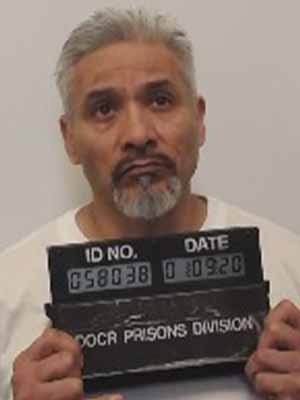

However, Valentin Jose Valenzuela could lose that opportunity if Pima County Attorney Laura Conover can get the Arizona Court of Appeals to overturn the decision by Judge Michael Butler of the Pima County Superior Court.
On Nov. 3, attorneys in Conover’s office will argue to a three-judge appellate panel that the North Dakota daughter, referred to in court as A.V., is protected by the Arizona Victim Bill of Rights and thus cannot be forced to speak with the defense prior to her testimony at Valenzuela’s trial for allegedly abusing another daughter, V.B., for several years in the 1990s.
Valenzuela’s attorneys with the Pima County Legal Advocate’s Office will argue that A.V. is a non-victim material witness and thus must make herself available for a pretrial interview.
In the meantime, the case against Valenzuela, 55, has been put on hold while the matter is taken up by the court of appeals. The losing side will likely petition for review to the Arizona Supreme Court, further delaying Valenzuela’s trial.
At issue is the whether the Arizona Constitution’s Bill of Victims Rights applies to a non-Arizona citizen who was victimized in another state, and if that constitutional protection overrides a defendant’s right to interview a witness who is being called to testify under Rule 404 of Arizona’s Criminal Rules of Evidence Procedure.
Rule 404(b) states evidence of “other crimes, wrongs, or acts” may be admissible for proof of motive, opportunity, intent, preparation, plan, knowledge, identity, or absence of mistake or accident. And in a criminal case in which a defendant is charged with having committed a sexual offense, Rule 404(c) states “evidence of other crimes, wrongs, or acts may be admitted by the court if relevant to show that the defendant had a character trait giving rise to an aberrant sexual propensity to commit the offense charged.”
According to court records, Valenzuela left his family in Arizona sometime after V.B. reported to the Tucson Police Department in 2003 that she had been sexually abused by her father. Valenzuela, also known as Valentin Rivas Valenzuela, then moved to North Dakota where he started a new family.
In October 2018, A.V. notified police in North Dakota that she had been abused by her father for several years. Her report led TPD to reopen V.B.’s report from 2003, and after further investigation Valenzuela was indicted by a Pima County grand jury in May 2019.
Valenzuela pleaded guilty in North Dakota to one felony count of Continuous Sexual Abuse of a Child and was sentenced in January 2020 to 12.5 years in prison. That is in addition to 455 days he spent in jail awaiting resolution of the North Dakota case. Valenzuela must also serve 5 years of probation upon his release.
As the Pima County case began moving closer to trial, the prosecutor announced plans to call A.V. as a witness at the trial concerning V.B.’s abuse years earlier. Valenzuela’s attorneys then filed a motion to compel A.V.’s pretrial interview.
Valenzuela’s court appointed attorneys argued that A.V. was never victimized in Arizona, that the Rule 404 conduct she would be testifying about did not happen in Arizona, and that it was proper under the Arizona Rules of Criminal Procedure for Butler to order a deposition of any individual whose testimony is material to the case.
Judge Butler agreed with Conover’s office that if the North Dakota victim had been abused in Arizona then she could refuse a pretrial defense interview. But the judge ruled A.V. must make herself available for the interview, as Butler found no case law transferring Arizona’s constitutional victim protections to a North Dakota victim of abuse, even though the two states have similar victim rights.
“I’m not saying that practical reasons don’t exist that it would make sense, perhaps, but until somebody has concluded that it can transfer, I believe that Arizona victims are Arizona victims entitled to the Arizona victims’ rights,” Butler ruled. “North Dakota victims are North Dakota victims, and I think that the Court goes down a really dangerous road when I’m trying to analyze their victims Bill of Rights and how it would apply to somebody in a trial here.”
But A.V. has not yet been interviewed by Valenzuela’s attorney. Butler ordered a stay on his ruling, putting it and the case on hold until the Pima County Attorney’s Office petition for special action is heard.

